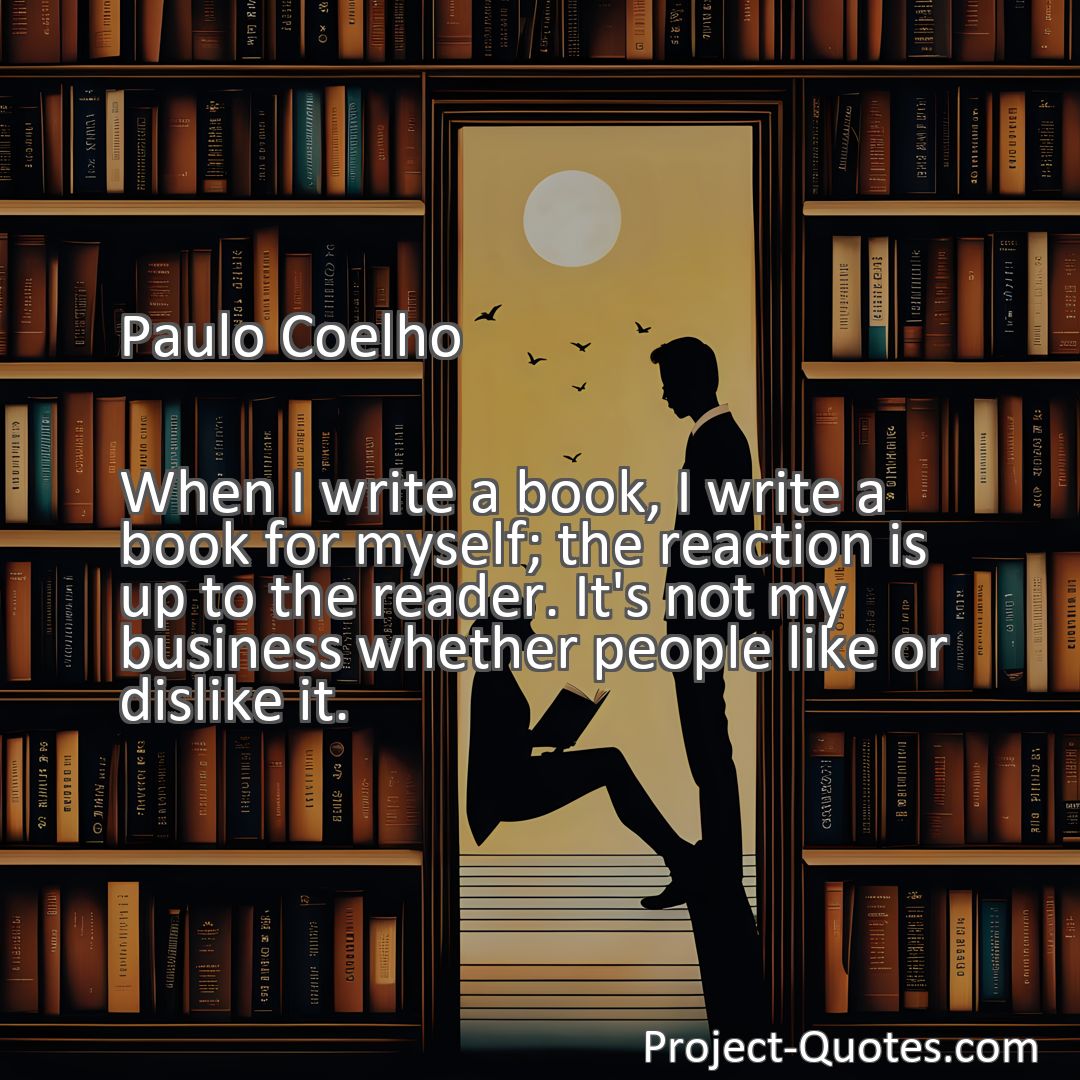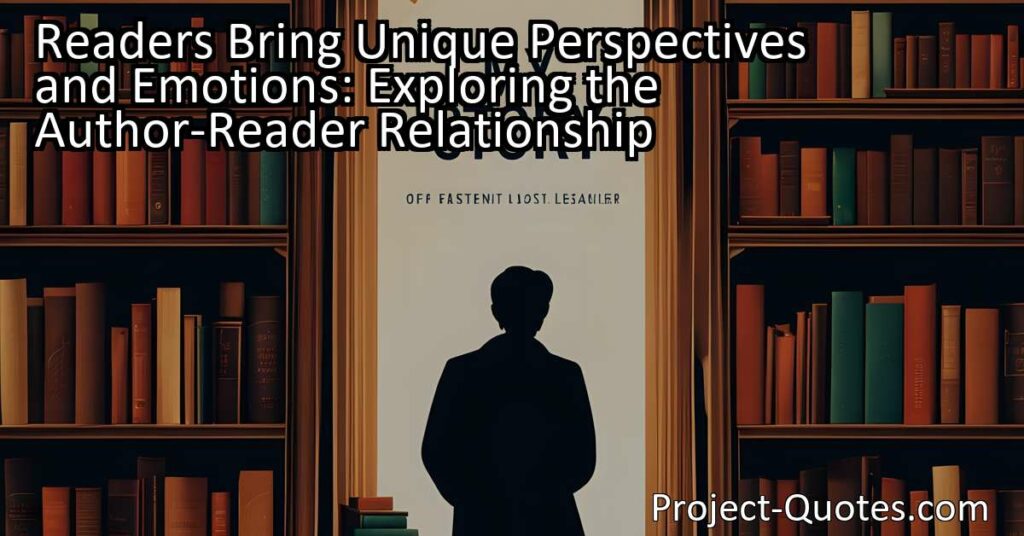When I write a book, I write a book for myself; the reaction is up to the reader. It’s not my business whether people like or dislike it.
Paulo Coelho
The author-reader relationship is a dynamic one, where authors write for themselves and readers bring their own unique perspectives and emotions to the table. While authors have the freedom to express themselves authentically, it is up to the reader to interpret and appreciate the work. The diverse reactions of readers add richness to the tapestry of literature.
Table of Contents
- 1 When I write a book, I write a book for myself; the reaction is up to the reader. It’s not my business whether people like or dislike it.
- 2 Paulo Coelho
- 3 Meaning of Quote – When I write a book, I write a book for myself; the reaction is up to the reader. It’s not my business whether people like or dislike it.
- 4 Freely Shareable Quote Image
- 5 Related
Meaning of Quote – When I write a book, I write a book for myself; the reaction is up to the reader. It’s not my business whether people like or dislike it.
Writing a book is a creative process that often starts with the author’s personal inspiration and desire to express their thoughts and ideas. Whether it’s a captivating story or an informative piece, the act of writing is driven by a personal need to communicate something meaningful to the world. As the acclaimed author Paulo Coelho once said, “When I write a book, I write a book for myself; the reaction is up to the reader. It’s not my business whether people like or dislike it.”
These words of wisdom from Coelho perfectly capture the essence of the author-reader relationship. While authors pour their hearts and souls into creating a literary masterpiece, once the book is out in the world, its impact is no longer solely in the author’s hands. It becomes the reader’s prerogative to interpret and appreciate the work, and the author gracefully steps aside to let that process unfold.
When an author approaches their writing with the mindset that their book is primarily for themselves, it allows them a sense of freedom and authenticity. By writing without being overly concerned about pleasing others, authors can delve into their passions, ideas, and personal experiences, creating a work that is genuine and true to themselves.
However, the importance of the reader’s role should not be diminished. As Coelho acknowledges, the reaction to the book lies in the hands of those who engage with it. Readers bring their own unique perspectives, emotions, and experiences to the table, which can greatly influence how they connect with and perceive the book.
A crucial aspect of the author-reader relationship is the mutual exchange of ideas and emotions. Through their writing, authors present their thoughts and invite readers to engage with them, to form their own opinions and connections. The beauty lies in the fact that each reader’s interpretation will be distinct, much like a fingerprint. Thus, a book can be viewed as a catalyst for sparking conversations and generating diverse perspectives.
The author-reader relationship is a delicate dance of understanding and respect. While authors desire to be heard and appreciated, they also recognize that not everyone will connect with their work. Every reader brings their own set of preferences, biases, and expectations when they approach a book, and authors understand that it is simply unrealistic to aim for universal approval.
Moreover, a book that is universally loved may lose its appeal to intellectual curiosity and critical thinking. Differing opinions and reactions foster dialogue and intellectual growth, allowing readers to engage with the material on a deeper level. In this sense, having some readers dislike a book can actually be seen as a positive outcome, as it generates discussions and helps shape a more nuanced understanding of the work.
Furthermore, critics play an essential role in this ecosystem. They provide valuable insights and analysis that can enhance the reader’s experience, whether they agree with their assessment or not. Engaging with well-constructed critiques enables readers to develop a more discerning eye and to refine their own understanding and interpretation of the book.
It is important to note that while readers’ reactions are important, it does not mean that authors should completely ignore feedback. Writers often grow and evolve through the process of sharing their work with others. Constructive criticism can serve as a valuable tool to refine their skills and broaden their perspectives. However, authors should be cautious not to let outside opinions entirely dictate their craft, as that could compromise their authenticity and creative vision.
Ultimately, the author-reader relationship is a unique and dynamic one. Each party brings their own set of expectations, emotions, and experiences to the table. Authors write with passion and are not bound by the outcome of their work, while readers engage with books and form their own interpretations. It is within this intricate web of connections that the magic of literature truly comes alive.
So, whether you are an aspiring writer or an enthusiastic reader, take a moment to reflect on Coelho’s words: “When I write a book, I write a book for myself; the reaction is up to the reader. It’s not my business whether people like or dislike it.” Embrace the freedom to express yourself authentically and engage with books with an open mind. And remember, every reader’s reaction is valuable and adds richness to the tapestry of literature.
I hope this quote inspired image brings you hope and peace. Share it with someone who needs it today!


